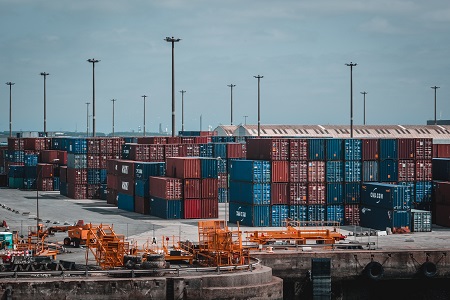The South African Association of Freight Forwarders (SAAFF) and the Minerals Council South Africa are calling on the government to take urgent steps to address severe congestion at the Lebombo/Ressano Garcia border post on the Maputo Corridor that has cost trucking companies R1.3bn in lost revenue so far this year.
This comes in the wake of extremely long delays in border-crossing times, with waits of more than three days in recent weeks, exacerbating a crisis that has been ongoing since the beginning of August 2021.
The greatest challenge to the border crossing is the lack of 24-hour operations, resulting in crossing times increasing from an average of 1 hour to more than 20 hours since 2019. Covid restrictions exacerbate the situation and vaccination certificates expire while they wait in the queues. Transporters confirm that border crossing times are the worst they have experienced in 15 years.
The queue of trucks between Komatipoort and Lebombo is frequently between 7km and 15km long. This has serious humanitarian consequences, as drivers sit in their trucks for hours at a time when temperatures are above 40 degrees Celsius – without access to food, water or ablution facilities.
Transport companies carrying cargo in transit from South Africa to Maputo harbour estimate the border delays have resulted in more than R1.3 billion of lost revenue for the year to date. Both the mining and transport sectors are losing confidence in the ability of the public sector to support trade on this strategic Corridor.
“These delays are resulting in loss of confidence, a loss of business and they are threatening the stability and sustainability of trade, transport, employment and job creation in South Africa,” said Dr Juanita Maree, CEO of SAAFF.
“Efficient corridors have a significant impact on the competitiveness of local business and regional economies because they provide a measure of predictability, reliability and efficiency central to trade and logistics supply chains – which is key to providing access to markets.”
For bulk exporters like chrome, coal miners, the high level of crime on the railway linking their operations to Richards Bay, has severely disrupted Transnet Freight Rail’s ability to provide a reliable service. The poor performance at Transnet’s Richards Bay port operations has also pushed bulk exporters to use Maputo as an alternative export channel to retain their customers.
Calling for immediate intervention, SAAFF and the Minerals Council have outlined six ways forward:
- Urgent, intentional, focused and conciliatory bilateral engagements at the highest level of government to address the failure to address underlying tensions. The latent antagonism between South Africa and Mozambique at an operational level constitutes a significant barrier to trade and, ultimately, leads to additional costly delays, a deterioration of services to the users on both sides of the border post, and an overall inability to align with regional integration imperatives.
- A 24-hour One-Stop Border Post (OSBP), with round-the-clock operations, is a priority. The operating hours of the border, 06h00 to 22h00, are inadequate to deal with the volume of port-bound minerals in transit. There are between 800 and 1,200 trucks using the Maputo Corridor daily, depending on the market pricing cycle. The border operating times do not match the 24-hour operation of the Port of Maputo. Without synchronised landside logistics, the Port will not reach optimal efficiency, and the cost of short shipments and/or demurrage for vessels waiting in port for cargo at US$60,000 (R968 000) per day, is untenable. The Lebombo/Ressano Garcia border post must operate 24/7. This has been an ongoing discussion for more than 14 years, following the Heads of State agreement for this in 2007.
- Currently, traffic management is seen as a non-essential service on account of COVID-19 regulations. 24-hour operations of traffic policing must be re-instated at the border precinct. Without this, poor driver behaviour seriously compromises the safety of other road users and directly impacts the efficiency of the Corridor.
- Port-bound transit cargo moving from South Africa directly to the harbour in Maputo cannot be delayed by general cargo exports. Separation of this traffic must be facilitated urgently. The necessary infrastructure adjustments to the exit gate at Lebombo must be made as a matter of urgency.
- Standard Operating Procedures (SOPs) for parking facilities on the N4/EN4 need to be put in place: The costs for use of the dry port at Komatipoort, commonly known as KM7, and the terminal at KM4 at Ressano Garcia, add significant costs to the supply chain, with little attendant value added for trucks using these facilities. It is vital that the rationale and costs attached to these facilities are reviewed as a matter of urgency, and that charges are justified by compelling evidence showing improved efficiencies to border crossing times. At present, no Standard Operating Procedures exist for either facility. This opens the door for abuse and inconsistencies which do not serve the intended purpose of these facilities. This must be rectified as soon as possible.
- The establishment of a Public-Private Partnership Corridor management institution is urgent. The contribution made by the now-defunct Maputo Corridor Logistics Initiative (MCLI) was significant in facilitating increased trade on the Corridor. It was instrumental in developing the capacity of the Corridor to service cargo movement and ensure predictability, reliability and efficiency in cross-border trade with Mozambique. The absence of a platform for engagement between the public and private sector stakeholders on the Corridor, the absence of consistent monitoring and communication, facilitation and integration of activities to support efficiencies, is another major non-tariff barrier to trade.
Media contact
Rebecca Morpeth Spayne,
Editor, International Trade Magazine
Tel: +44 (0) 1622 823 922
Email: editor@intrademagazine.com








